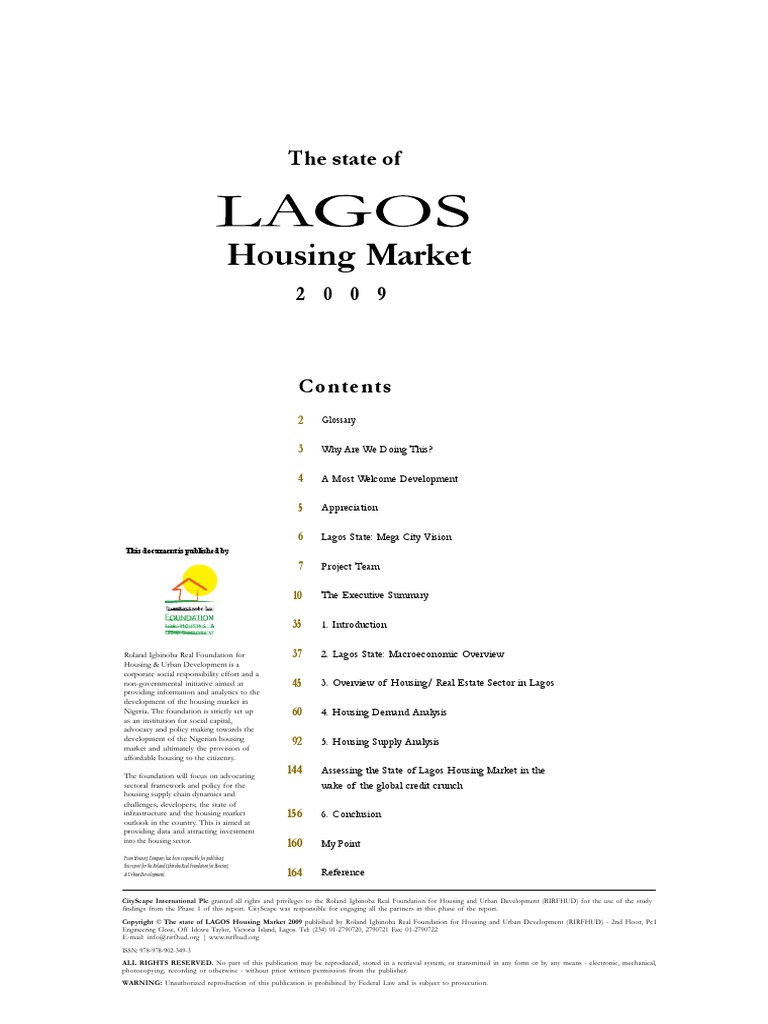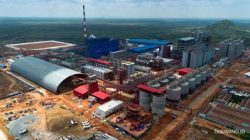The State of Lagos Housing Market: A Growing Crisis and Opportunities
The housing market in Lagos continues to face significant pressure, driven by a combination of rapid urbanization, demographic shifts, and economic challenges. A recent report titled “The State of Lagos Housing Market” has shed light on the complex dynamics shaping this critical sector.
Population Growth and Housing Demand
Lagos has experienced an influx of over 600,000 new residents annually, fueled by migration from other parts of Nigeria and beyond. This population surge has intensified demand for both rental and ownership housing, particularly among young professionals and students. However, the report highlights that this demand remains largely unmet due to affordability constraints.
Most Lagosians earn less than N100,000 per month, making it challenging for them to access formal housing options. Additionally, fewer than five percent of new housing units are priced below N15 million, further limiting accessibility for low- and middle-income groups. Rental demand is especially high among individuals under 35, many of whom face job insecurity and limited access to credit.
Emerging Housing Models and Supply Challenges
Despite these challenges, there is a growing interest in micro-units and co-living models, which offer more affordable alternatives. However, the supply of such housing remains insufficient to meet the rising demand. On the other end of the spectrum, the luxury residential market continues to attract investor attention, with areas like Ikoyi, Banana Island, Victoria Island, and Eko Atlantic seeing annual price appreciation rates ranging from 20 to 60 percent.
Notably, six-bedroom homes in Banana Island and Eko Atlantic reached index values exceeding 700 by the fourth quarter of 2024, indicating strong investor interest. These properties are often targeted at high-net-worth individuals and diaspora buyers, further highlighting the disparity between different segments of the market.
The Housing Deficit and Disparities
The report reveals a 15% increase in the housing deficit in Lagos, rising from approximately 2.95 million units in 2016 to 3.4 million in 2025. This growing gap underscores the urgent need for increased investment in affordable housing. Key areas such as Ikorodu, Badagry, and Alimosho face the highest demand but have minimal new supply, exacerbating the crisis.
While real estate prices have risen by 12% year-on-year, short-let rentals and serviced apartments have seen yields increase by 15–18% in highbrow areas. However, vacancy rates are rising in mainland zones due to affordability concerns, signaling a shift in market dynamics.
Economic and Structural Challenges
The cost of building materials has emerged as a major factor driving up house prices and reducing affordability. Nigeria’s heavy reliance on imported construction inputs, combined with the devaluation of the naira, port tariffs, and logistics bottlenecks, has led to sharp increases in material costs. For instance, the price of a 50kg bag of cement rose from approximately N4,500 in early 2024 to over N8,500 by early 2025. Diesel price hikes have also added to transportation costs, particularly in fast-growing but infrastructure-poor areas like Ibeju-Lekki and Badagry.
Government Initiatives and Future Outlook
The Lagos State governor, Babajide Sanwo-Olu, has emphasized the importance of data-driven decision-making in addressing housing challenges. Since its inception in 2009, the report has served as a vital tool for stakeholders in the housing sector. The state has implemented several reforms, including digitizing land administration through the Electronic Geographic Information System (e-GIS) and expanding mass transit networks to complement new housing developments.
The report also calls for stronger partnerships between government and the private sector to address informal settlements and unregulated developments. It advocates for targeted incentives, including land reforms, tax breaks, and mortgage support for developers focused on affordable housing.
Conclusion
The Lagos housing market presents a mixed picture of progress and persistent inequality. While luxury developments continue to thrive, the low-income segment remains underserved and underfunded. As the city grows, it is crucial for policymakers, developers, and investors to prioritize inclusive housing solutions that reflect the needs of all residents. The report serves as a valuable guide for shaping future policies and investments in the sector, emphasizing the need for sustainable and equitable urban growth.







